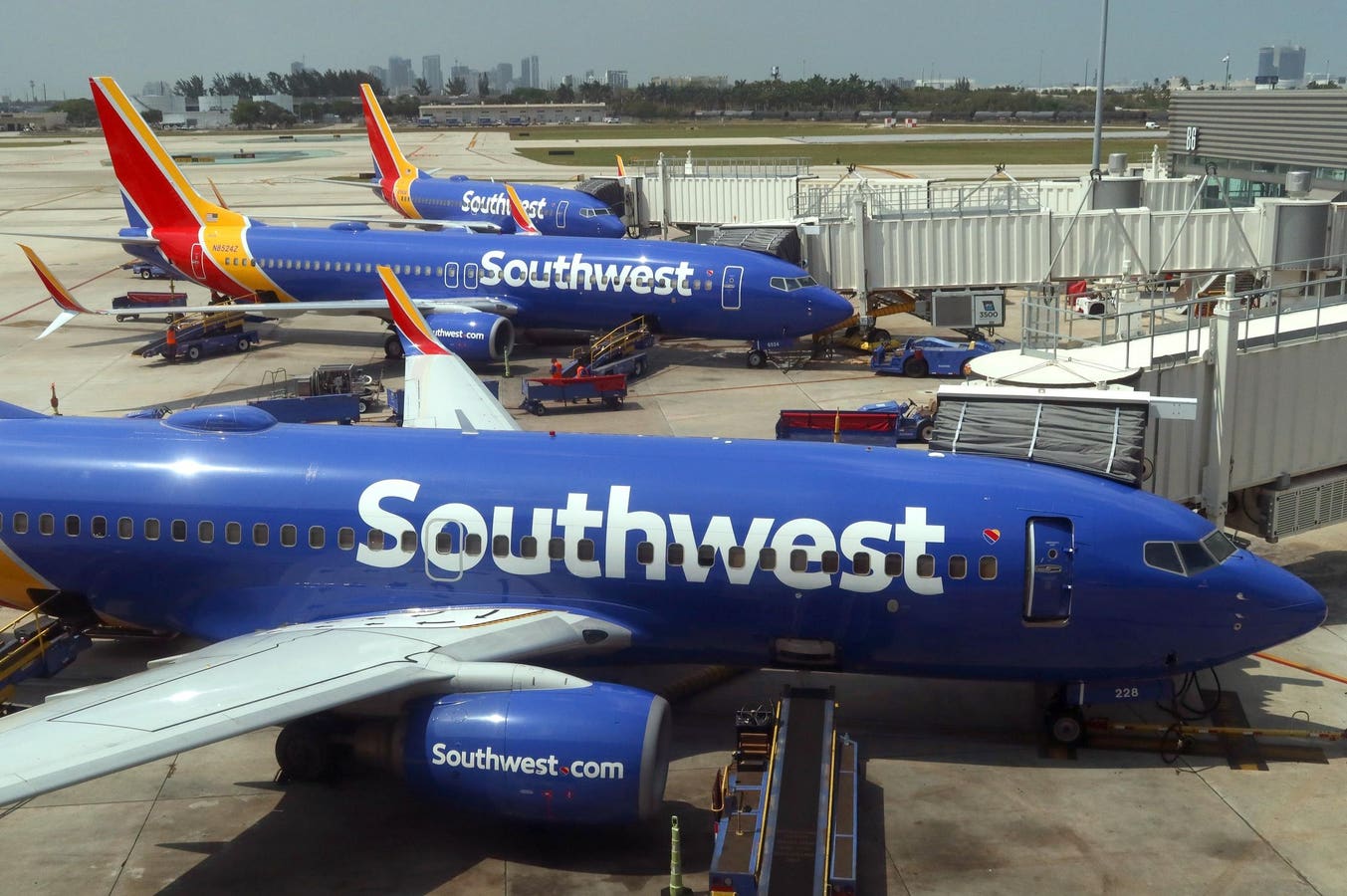Southwest Airlines needed a break and it got one on Friday, a day when the CrowdStrike technology meltdown disrupted schedules at all three of its major competitors.
In the United States on Friday, airlines cancelled 3,675 flights or 14% of the total, according to aviation analytics company Cirium. Another 56% of all flights were late by 15 minutes or more, Cirium said.
By 6 pm Friday, Delta had cancelled 1,326 flights, United had cancelled 562 and American had cancelled 466, Cirium said. Also, the percentage of aircraft that departed within an hour of schedule was 27% at Delta, 39% at Delta and 74% at American.
Southwest was an exception to the trend. It cancelled just three of its 4,390 departures. (American operated 6,026 departures, Delta operated 5,002 and United operated 4,281.) Also 94% of Southwest flights departed within an hour of the scheduled time.
Southwest did not comment, except to say late Friday, in an email, that: “The outage did not directly affect our operations, but we encourage customers to check their flight status throughout the day while the overall aviation system continues to recover.”
Southwest was not the only airline largely unaffected by the meltdown. However, it was the largest. Alaska, with 1,299 departures, had four cancellations while 99% of flights departed within an hour of schedule while JetBlue, with 753 departures, had zero cancellations while 97% of flights departed within an hour of the scheduled time, Cirium said.
A story on the website govtech.com on Friday asked the question, “Why isn’t Southwest affected by the CrowdStrike/Microsoft outage?
“That’s because major portions of the airline’s computer systems are still using Windows 3.1, a 32-year-old version of Microsoft’s computer operating software,” the website said. “It’s so old that the CrowdStrike issue doesn’t affect it so Southwest is still operating as normal. It’s typically not a good idea to wait so long to update, but in this one instance Southwest has done itself a favor.”
Southwest is having a tough year.
Its stock is down 5% year-to-date; its egalitarian model is threatened by consumer preference for premium travel, and a big hedge fund has the carrier in its sights.
In June, hedge fund Elliot Investment Management, disclosed that it has a $1.9 billion stake in Southwest. Elliot said it wants to name new board members and to get rid of CEO Bob Jordan. In a nasty letter on July 8th, Elliot mentioned “the lost credibility of Southwest’s management” and said the board is “profoundly out of touch.”
Notably, Southwest has been trying to turn the page on a December 2022 meltdown caused by the failure of aging technologies, including one that was supposed to handle crew scheduling in emergencies. The technology failures resulted in 16,900 cancellations and stranded two million passengers. A year later, Southwest agreed to a $140 million civil penalty.
In a June letter, Elliot said it wants a committee to initiate a review that “would modernize Southwest’s strategy and operations with a focus on increased customer choice, improved cost execution and updating outdated IT systems.”
Note to Elliot: Maybe we should go slow on the IT updating. Maybe newer is not always better.
Read the full article here





